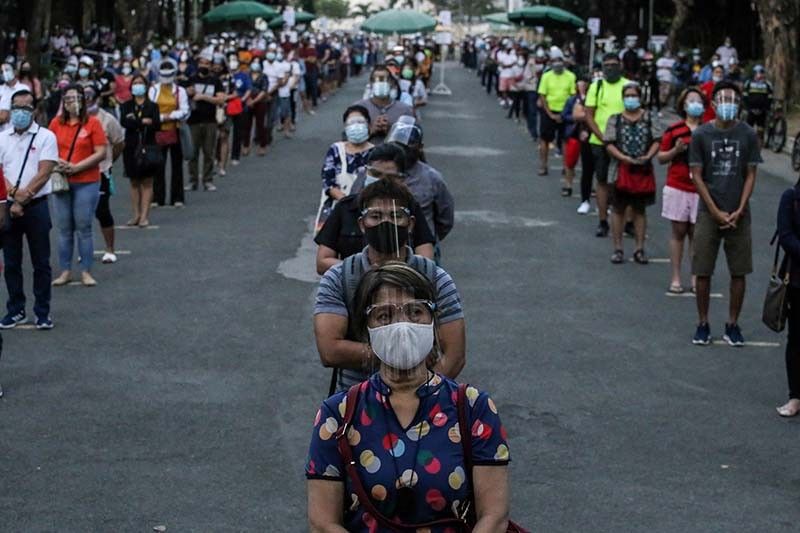Metro Manila will be under 'constant' threat of surge if it shifts to MGCQ — OCTA

MANILA, Philippines — A surge in COVID-19 cases could happen in Metro Manila should the capital region shift to the loosest quarantine mode, the OCTA Research Team said.
In a report published Wednesday, the OCTA Research Team said that cases in Metro Manila—the epicenter of the country’s coronavirus outbreak—will reach 2,400 per day should the government place it under modified general community quarantine, the most lenient quarantine status.
“Note that 2,400 cases per day was the level in NCR in August 2020 when the pandemic became unmanageable and NCR had to be placed under stricter quarantine to curb transmissions,” researchers from the University of the Philippines and University of Santo Tomas said.
The reproduction rate in the capital region is at 1, they said. Reproduction rate refers to the number of individuals that one COVID-19 positive case can infect.
Citing the presence of the more contagious coronavirus variant, the experts also pointed out that the nationwide shift to MGQC is risky for Metro Manila.
“[It] is not just risky but also contrary to sensible epidemic management,” the OCTA Research Team said.
“If restrictions in NCR are relaxed to very loose levels, the region will be under a constant threat of a surge due to the increased mobility of people, reduced social distancing and diminished compliance with health protocols, as was observed at the outset of the December holidays,” they added.
The National Economic and Development Authority recommended placing the entire Philippines under MGCQ next month to address hunger and income losses caused by prolonged lockdowns. President Rodrigo Duterte is studying the proposal.
Majority of the provinces and cities in the country are now under MGCQ, where about 75% of industries are allowed to operate.
Only Metro Manila, Batangas, Abra, Apayao, Benguet, Baguio City, Ifugao, Kalinga, Mountain Province, Tacloban City, Davao City, Davao del Norte, Lanao del Sur and Iligan City are under stricter GCQ.
Defer proposal
The OCTA Research Team urged the national government to defer the consideration of the said proposal, as well as the recommendation to ease age restrictions for vulnerable groups in the capital region until indicators such as daily new cases and reproduction number improve.
The government must also finish vaccinating all health workers in the region before relaxing movement restrictions.
“We believe that this should be a prerequisite to any significant decision to shift the NCR to MGCQ status,” the researchers said.
Authorities announced the delivery of the first batch of COVID-19 vaccines from the COVAX facility, which would benefit medical frontliners, could be expected by mid-February. But vaccine czar Carlito Galvez said indemnification requirements caused the delay.
The government has been also criticized for its slow pace in vaccine procurement.
The OCTA Reseach Team also stressed that local governments in the capital region must ensure that the threat posed by the B.1.1.7 variant is minimized and must be given more time to prepare for a transition to MGCQ status.
“NCR needs to be prepared not just in terms of resources but also in terms of systems and an expanded capacity to do testing, effective contact tracing, and supportive isolation in preparation for a possible surge in cases. These systems must be in place before we ease restrictions, especially in high risk areas,” they said.
Metro Manila and neighboring areas reverted back to modified enhanced community quarantine in August after exhausted medical frontliners, who warned a collapse of the healthcare system, called for a “timeout.”
To date, the Philippines has over 553,000 cases, with 11,577 deaths. — with report from The STAR/Alexis Romero
- Latest
- Trending
































